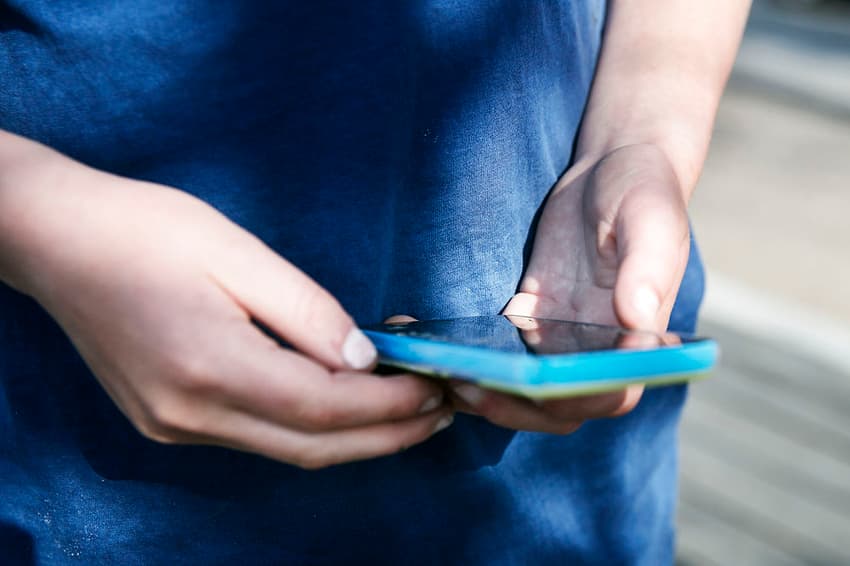Schools can decide own smartphone rules in Denmark: MPs

Danish schools will be allowed to make their own decisions as to whether classrooms should be mobile-free zones, major political parties say.
The three parties with the largest number of MPs – the Social Democrats, the Danish People’s Party and the Liberal (Venstre) party – all consider the matter to be one for local authorities.
The issue was raised after France this week passed a law banning school children from taking phones into class.
READ ALSO: How France's mobile phone ban in schools will work (or not)
“Some schools in Denmark have also take that step, and I support them. But we shouldn’t be making laws about it in parliament,” Anni Mathiesen, a spokesperson with the Liberal party, said.
“I think it can be dealt with differently from school to school and even from year group to year group,” she added.
Eight out of ten people in Denmark are in favour of banning phones from schools, according to a survey conducted by Megafon on behalf of TV2 and Politiken earlier this year.
The Liberal and Social Democrat parties said they were open to a discussion of a national measure on the matter in future, but not at the present time.
“That survey does make an impression,” Social Democrat spokesperson Anette Lind said.
One school in Copenhagen, which decided to implement a rule against mobiles last year, said it has had the desired effect.
“When you go to the school you can see that children who previously had their heads buried in their phones have been replaced by children that are talking to each other or playing,” Lise Ammitzbøll la Cour, head teacher at Skolen på Gruntvigsvej in Frederiksberg, said.
Administration of schools in Denmark comes under the authority of municipalities, but many decisions are delegated to the managements of the schools themselves.
Danish People’s Party spokesperson for schools Alex Ahrendtsen said his party was against smartphones in classrooms, but that the policy must be implemented locally.
READ ALSO: Denmark calls time on last coin-operated payphones
Comments
See Also
The three parties with the largest number of MPs – the Social Democrats, the Danish People’s Party and the Liberal (Venstre) party – all consider the matter to be one for local authorities.
The issue was raised after France this week passed a law banning school children from taking phones into class.
READ ALSO: How France's mobile phone ban in schools will work (or not)
“Some schools in Denmark have also take that step, and I support them. But we shouldn’t be making laws about it in parliament,” Anni Mathiesen, a spokesperson with the Liberal party, said.
“I think it can be dealt with differently from school to school and even from year group to year group,” she added.
Eight out of ten people in Denmark are in favour of banning phones from schools, according to a survey conducted by Megafon on behalf of TV2 and Politiken earlier this year.
The Liberal and Social Democrat parties said they were open to a discussion of a national measure on the matter in future, but not at the present time.
“That survey does make an impression,” Social Democrat spokesperson Anette Lind said.
One school in Copenhagen, which decided to implement a rule against mobiles last year, said it has had the desired effect.
“When you go to the school you can see that children who previously had their heads buried in their phones have been replaced by children that are talking to each other or playing,” Lise Ammitzbøll la Cour, head teacher at Skolen på Gruntvigsvej in Frederiksberg, said.
Administration of schools in Denmark comes under the authority of municipalities, but many decisions are delegated to the managements of the schools themselves.
Danish People’s Party spokesperson for schools Alex Ahrendtsen said his party was against smartphones in classrooms, but that the policy must be implemented locally.
READ ALSO: Denmark calls time on last coin-operated payphones
Join the conversation in our comments section below. Share your own views and experience and if you have a question or suggestion for our journalists then email us at [email protected].
Please keep comments civil, constructive and on topic – and make sure to read our terms of use before getting involved.
Please log in here to leave a comment.